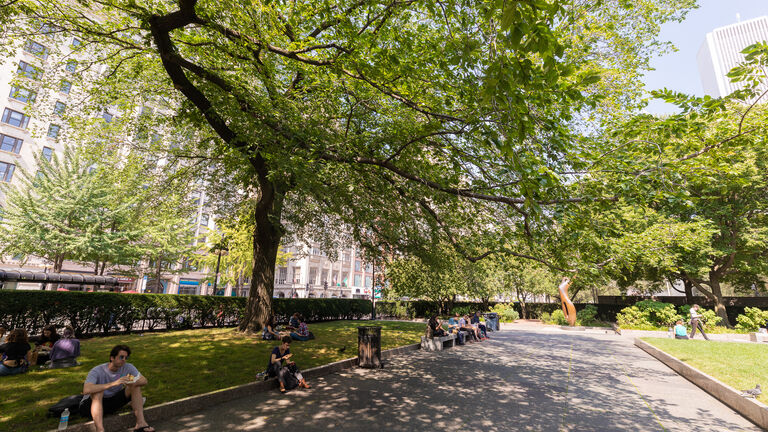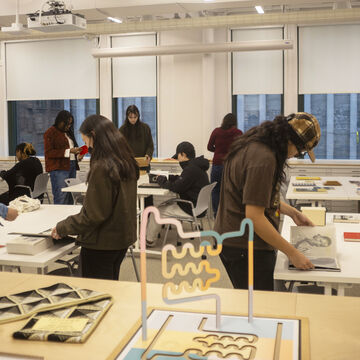
Initiatives & Programs
Initiatives & Programs
The Office of Campus Enrichment and Community Engagement works to foster a culture of belonging by creating programming that affirms and facilitates shared learning and academic connectedness amongst the campus community and beyond.

Education and Development
The office creates, conducts, and coordinates a host of educational programs, customized trainings, workshops, and funding opportunities to ensure the educational enrichment and development of all SAIC students, faculty, and staff.
Annual Shared Read
Community Engaged Degree Classes
Fall Faculty Institute
Community-based Arts Education programs
Projects for Peace Summer Grants
Pulitzer Reporting Summer Fellowship
Social Responsibility and Global Awareness Infusion Grant
Chicago as Studio Field Trip Grants

Connection and Community
The office fosters a welcoming, connected, and engaged campus community through its programming, outreach, and collaborations on campus and in Chicago.
Campus Community Builders
Campus Resource and Support Network
You are SAIC Retention Program for First-year Students
SAIC Connects: Chicago Neighborhood Tour and Lecture Series
Martin Luther King, Jr. Days of Service
Heritage Awareness Programs & Initiatives (HAPI)
Student Affinity Groups
Community Agreement & Conflict Resolution Skills Workshops
Student Committee for Enrichment and Engagement
Inclusive Spaces
Cultural Oasis, Sullivan Center, room 1425
Meditation & Prayer Room, MacClean Center, lower level
Lactation Rooms
Accessible and All Gender Bathrooms
Engagement Suite, Sharp Building, room 711

@ the Intersections: SAIC x Chicago
The office supports SAIC's commitment to community and campus partnerships by fostering meaningful collaborations that connect SAIC students, faculty, and staff with organizations across Chicago and beyond. Through these partnerships, the office supports creative exchange, civic engagement, and learning experiences that extend art and design practice beyond the classroom and into the communities SAIC serves.
Homan Square
A Long Walk Home Summer Leadership Institute
Creativets program
SAIC Campus Consortium Pulitzer Center Fellowship
Chicago as Studio Field Trip Grants
Outlast Arts and Education Summer Camp